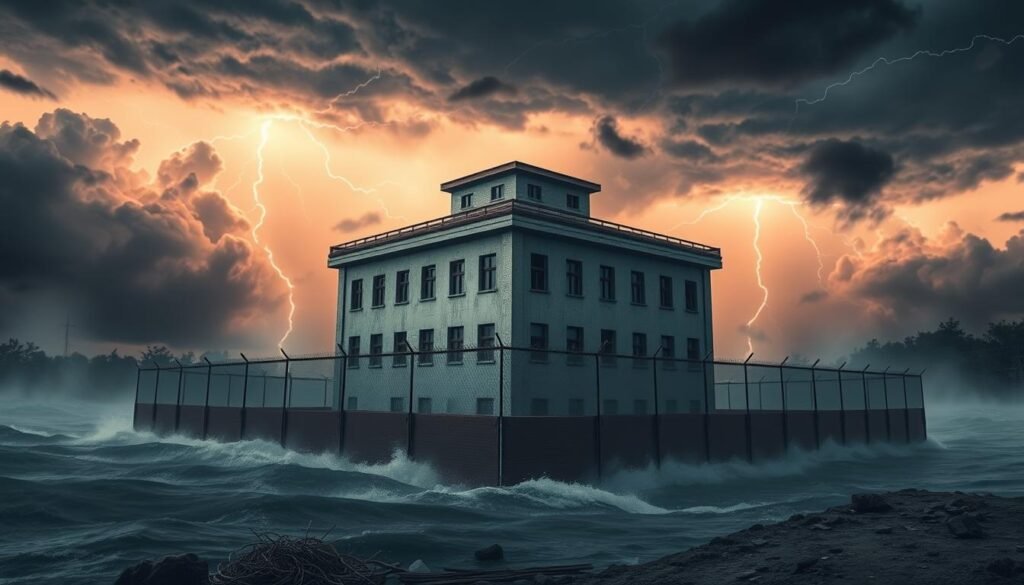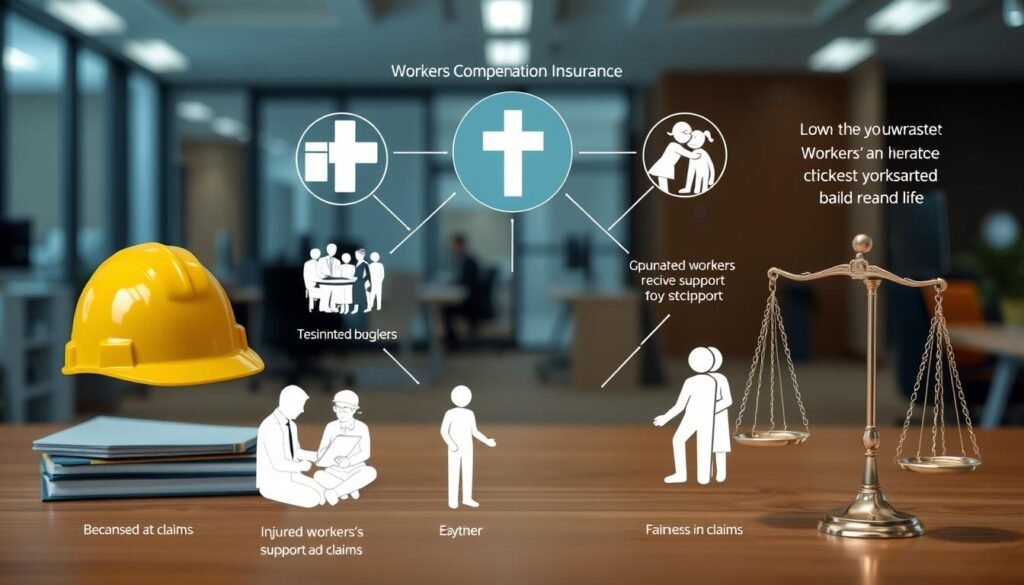Today, insurance is more than just an extra cost. It’s a important investment in your business’s future. Whether you’re starting a new business or running an old one, good insurance helps you grow and stay strong against surprises. Recent data shows insurance costs might go up by 3-5% in 2025. Some areas might see even bigger increases because of weather and cyber threats. It is important to know why insurance is more critical than ever for business owners.
According to our topic research, the 5 essential reasons why your business needs insurance are: protection against legal actions, coverage for workplace injuries and illnesses, financial security and risk mitigation, compliance with state regulations and requirements, and protection from natural disasters and unexpected events
This guide will show you the top five reasons your business needs insurance. It includes expert advice, real examples, and tips to help you protect your business.
Table of Contents
ToggleKey Points
- Business insurance protects against legal actions and financial risks.
- It offers protection from workplace injuries and unexpected events.
- Compliance with state regulations is crucial for legal operations.
- Having comprehensive insurance coverage enhances credibility and attracts talent.
- Investing in business insurance is essential for long-term financial security.
Overview of Business Insurance
Business insurance covers different types of policies to protect companies from financial losses. Owners must pick the right insurance types, like property, liability, and employee coverage.
In most states, businesses must have workers’ compensation insurance to protect employees from job-related injuries and disabilities. General liability insurance is key for handling claims and legal costs from lawsuits over injuries or damage. It’s also smart for companies to get business property insurance to guard against losses from disasters or theft.
Each insurance type offers unique benefits to keep a business running through tough times. For example, business interruption insurance helps by covering losses from property damage that stops business. With more cyber threats, data or cyber breach liability insurance is vital for handling claims from cyberattacks.
| Type of Insurance | Coverage Description | Key Benefits |
|---|---|---|
| Workers’ Compensation | Covers employee injuries and disabilities incurred at work | Mandatory in most states, provides financial support for employees |
| General Liability | Protects against claims of bodily injury or property damage | Covers legal costs and settlements, protects business reputation |
| Business Property | Safeguards equipment and property from loss or damage | Critical for recovery after incidents like fires or theft |
| Cyber Insurance | Covers costs linked to data breaches and cyberattacks | Essential for protecting sensitive customer information |
| Business Interruption | Reimburses lost income due to property damage | Ensures business continuity during unexpected closures |
Importance of Business Insurance
Business insurance is vital today, with legal and financial threats all around. It’s important to keeping a business financially strong. Almost every state makes businesses have insurance, like workers’ compensation for employees. This shows why it’s a must-have for your business.
Liability claims can be huge, so having insurance like professional and general liability is a must. General liability helps with lawsuits from others, like slip-and-fall cases. Cybersecurity threats are also on the rise, leading to big financial losses and harm to a company’s reputation. So, data breach insurance is now a must for businesses.
Business insurance also keeps employees safe. Workers’ compensation covers medical bills and lost wages from work accidents. This insurance boosts productivity and meets legal needs, protecting the company and its workers.
When a business can’t run because of property damage, business income coverage helps keep it going. General property insurance also protects against losses to business property, owned or rented.
Seeing insurance costs as an investment is smart. It guards against unexpected losses and many costs can be deducted as business expenses. A good insurance plan boosts a business’s trustworthiness and draws in top talent with strong benefits.
5 Essential Reasons Why Your Business Needs Insurance
Having business insurance is crucial for protecting against legal actions. Legal issues can pop up without warning, and the right coverage can save my business from huge legal defense costs. For example, many small business owners choose general liability insurance to cover risks like slip-and-fall injuries and property damage. Without it, a lawsuit could wipe out my finances.
1 Protection Against Legal Actions
Safeguarding Your Business from Litigation
Legal problems can pop up out of nowhere and hurt your finances a lot. General liability insurance is your first defense against claims of injury, damage, or bad ads. “Having the right liability coverage is a must in today’s lawsuit-prone world,” says Michael Rand, Risk Management Director at Tivly Insurance. “Even a small issue can turn into a lawsuit that could ruin a company if they’re not insured.”
About 40% of small businesses will face a claim in the next ten years, The Hartford says. Claims can cost $75,000 on average, and over $1.5 million for bad reputation claims. So, having enough protection is a must, not just a choice.
Case Study The Restaurant Owners Fire Crisis
A downtown bistro had a big fire in the kitchen. It damaged the building and expensive equipment a lot. Luckily, the owner had insurance for fire damage and business interruption. This helped him stay open after six months, not shut down forever.
Types of Legal Protection Insurance Provides
Different businesses face different legal risks. It’s important to know the different types of liability coverage:
- General Liability Insurance: Covers claims of bodily injury, property damage, and advertising injury
- Professional Liability Insurance: Protects against claims of negligence or inadequate work
- Product Liability Insurance: Covers claims related to product defects causing injury or damage
- Cyber Liability Insurance: Protects against claims related to data breaches and cyber attacks
By choosing the right liability coverage, businesses can move big legal and financial risks to their insurance. This lets owners focus on growing their business instead of worrying about lawsuits.
2. Coverage for Workplace Injuries and Illnesses
Protecting Your Most Valuable Asset: Your Employees
Workplace injuries can lead to big medical bills and lost work time. Workers’ compensation insurance is not just a legal must in most states. It’s a key protection for both workers and employers.
The U.S. Bureau of Labor Statistics says there were 2.7 million nonfatal workplace injuries and illnesses in recent years. The average workers’ compensation claim costs about $41,000 for medical and lost wages.
Workers’ compensation offers several key benefits:
- Coverage for employee medical expenses from work-related injuries
- Replacement of lost wages during recovery
- Protection for employers against expensive lawsuits
- Support for getting back to work and rehabilitation programs
| Type of Workplace Injury | Average Claim Cost |
|---|---|
| Strains and Sprains | $32,000 |
| Cuts and Punctures | $27,500 |
| Contusions | $30,200 |
| Inflammation | $35,000 |
| Fractures | $58,000 |
“New employees are very vulnerable,” says safety consultant Rebecca Johnson. “The 2024 Travelers Injury Impact Report shows 38% of workplace injuries happen in the first year. This highlights the need for good onboarding, training, and insurance.”
Flow-chart of Types of Insurance and Coverage Offered
| Type of Insurance | Coverage Offered |
|---|---|
| General Liability Insurance | Covers slip-and-fall injuries, property damage. |
| Workers’ Compensation Insurance | Covers medical costs and lost wages due to workplace injuries. |
| Professional Liability Insurance | Covers errors and omissions in professional services. |
| Business Owner’s Policy (BOP) | Combines general liability and commercial property coverage. |
| Commercial Property Insurance | Covers damage or vandalism to business-owned property. |
3. Financial Security and Risk Mitigation
Eliminating Out-of-Pocket Expenses
Business insurance is crucial for financial safety. Without it, businesses face huge costs that could shut them down. Over 60% of businesses face unexpected property damage costs. Insurance helps cover these costs, so they don’t hurt your business or personal money.
Mitigating the Risk of Bankruptcy
Insurance acts as a safety net against financial loss. Half of small businesses face big income drops from unexpected events. Without insurance, these drops can lead to bankruptcy.
“Insurance isn’t just for damages,” says financial advisor Sarah Williams. “It keeps your business going when things get tough.”
Here are some scary facts:
- 40% of businesses never reopen after a disaster
- – 25% of businesses that reopen fail within a year
- – 75% of businesses without plans fail within three years of a disaster
For many small business owners, their business represents their primary source of income and often their largest asset. Proper insurance coverage protects not just the business itself, but the owner’s financial future and legacy.

4. Compliance with State Regulations and Requirements
Understanding Legal Insurance Requirements
Most states require certain insurance types. Not following these rules can lead to big fines, legal trouble, and even closing your business. Workers’ compensation is needed in almost all states for businesses with employees. The rules vary, but not following them is very serious.
You could face:
- Big fines (often every day until you comply)
- Paying all medical bills and lost wages for injured workers
- Criminal charges in some places
- Losing the right to do business in the state
“Dealing with insurance rules can be hard,” says compliance attorney David Chen. “Requirements change based on where you are, what you do, and how many employees you have. It’s smart to work with someone who knows the rules in your state.”
| Common Mandatory Insurance Types | Typical Requirement By State |
|---|---|
| Workers’ Compensation | Required in most states for businesses with employees |
| Commercial Auto Insurance | Required if business vehicles are used |
| Professional Liability Insurance | Required for certain licensed professions |
| Unemployment Insurance | Required for businesses with employees |
| Disability Insurance | Required in some states (CA, HI, NJ, NY, RI) |
5. Protection from Natural Disasters and Unexpected Events
Safeguarding Against Catastrophic Losses
Natural disasters and unexpected events can cause huge damage. In 2024, weather-related property losses were about $127-129 billion, Smart Financial reports. “Climate change makes weather events worse,” says meteorologist Dr. Elena Rodriguez. “Insurance is key to protect against these risks.”
Commercial property insurance helps protect against:
- Fire damage
- Storm damage (hurricanes, tornadoes, severe winds)
- Water damage from broken pipes or flooding
- Structural damage from earthquakes
- Theft and vandalism
Real-World Impact: Hurricane Helene Case Study
Hurricane Helene hit the southeastern United States hard in 2024. It showed how insurance can save or sink a business. In Asheville, North Carolina, two shops faced flooding. The shop with good insurance and business interruption coverage reopened in four months. The shop without enough insurance closed after using up all its savings. Insurance costs for businesses might go up a lot. By 2030, it could be $4,890 a month. For places hit by extreme weather, it might be $6,062 a month

Attracting and Retaining Employees
In today’s job market, offering business insurance benefits is vital. Nearly half of American workers are looking for new jobs. It’s important for companies to offer more to keep employees happy and loyal. Studies show that 75% of workers are more likely to stay with a company that has good benefits. In industries like construction, the turnover rate is high, showing the need for better work environments.
Health insurance is a big part of any small business’s benefits. It helps keep good workers and attracts new ones. Offering unexpected benefits can make employees happier and more likely to stay. Things like family events or community service can make workers feel part of a team and more loyal.
Companies that keep healthcare costs down and use the savings for benefits have an edge in keeping employees. When a company’s culture matches its benefits, it shows it cares about its workers. This makes a supportive work environment more likely.
Enhancing Credibility with Clients
It’s key to build trust with clients. Showing I have the right insurance proves I’m professional and can handle risks well. This trust grows when I show I’m ready for accidents or surprises.
Insurance keeps my business going, even when things like natural disasters hit. It shows I care about my clients and am a dependable partner. This trust makes clients feel safe working with me.
Having insurance also helps me work better with vendors and partners. It shows I’m serious about managing risks and taking care of my business. Things like liability and workers’ comp insurance protect my business and show I’m serious about being responsible.

| Type of Insurance | Benefits |
|---|---|
| Liability Insurance | Covers legal fees and medical expenses resulting from accidents. |
| Business Interruption Insurance | Compensates for lost income during disruptions. |
| Workers’ Compensation Insurance | Covers employees’ treatment and lost wages due to workplace injuries. |
| Professional Liability Insurance | Protects against claims of negligence in professional services. |
What Types of Insurance Do You Need?
It’s important to know the different types of business insurance to protect your business from surprises. The right policies help you to stay safe from lawsuits, employee issues, and damage of property. Here are two main types of insurance every business needs.
General Liability Insurance
General liability insurance is a must-have for all businesses. It helps with legal problems from accidents, injuries, and claims of carelessness. This keeps my business’s good name safe. Almost every small business should get this, as it covers common accidents with customers or clients. It also shields against claims of bodily harm and property damage, which could be very costly.
Workers’ Compensation Insurance
This insurance is a must in most states. Workers’ compensation helps employees who get hurt or sick on the job. It pays for medical bills and lost wages, keeping me safe from lawsuits. It’s a key part of a full insurance plan, protecting my employees and my business.
| Type of Insurance | Coverage | Who Needs It? |
|---|---|---|
| General Liability Insurance | Legal claims for accidents or injuries | All businesses, especially those with client interactions |
| Workers’ Compensation Insurance | Employee medical costs and lost wages | Businesses with employees |
| Product Liability Insurance | Claims from defective products causing injury | Businesses that manufacture or sell products |
| Commercial Property Insurance | Property damage from disasters or vandalism | Businesses with significant physical assets |
Buying these essential insurances protects my business and creates a safe workplace. Each policy has its own role in keeping my business strong and respected in the market.
Remember, the right insurance can determine the stability and growth of my business.
It’s important to look at your specific needs and risks to pick the best coverage. This ensures your business’s success and safety in the long run.
Building a Comprehensive Business Insurance Strategy
Essential Insurance Types for Your Business
To properly protect your business, consider these fundamental coverage types:
1. General Liability Insurance
- Protects against third-party claims of bodily injury, property damage, and advertising injury
- Average cost: $400-$600 annually for small businesses
- Coverage limits typically start at $1 million per occurrence
2. Workers’ Compensation Insurance
- Covers medical expenses and lost wages for work-related injuries
- Required by law in most states for businesses with employees
- Cost varies significantly by industry, payroll size, and claims history
3. Commercial Property Insurance
- Protects your building, inventory, equipment, and furnishings
- Can cover fire, storm damage, theft, and vandalism
- Business interruption coverage can be added to replace lost income
4. Professional Liability Insurance
- Essential for service businesses to protect against claims of errors, negligence, or inadequate work
- Particularly important for consultants, accountants, lawyers, and healthcare providers
- Average cost: $500-$1,000 annually for small businesses
5. Business Owners Policy (BOP)
- Bundles general liability and property insurance at a discount
- Often includes business interruption coverage
- Cost-effective option for small to medium-sized businesses
- Average cost: $500-$3,500 annually, depending on business size and risk factors
Expert Recommendations for 2025
As we move into 2025, insurance professionals recommend these strategies:
- Review coverage limits annually: With rising costs of repairs, materials, and legal settlements, coverage that was adequate last year may be insufficient today.
- Consider cyber liability insurance: With cyber attacks on small businesses increasing by 30% in 2024, this coverage is becoming essential for businesses of all sizes.
- Implement risk management practices: Many insurers offer premium discounts for businesses that implement safety protocols and risk mitigation strategies.
- Bundle policies when possible: Business Owners Policies (BOPs) typically offer comprehensive coverage at lower rates than purchasing individual policies.
- Work with an experienced agent: An agent familiar with your industry can identify specific risks and coverage needs you might overlook.
Case Study: How Insurance Saved a Small Manufacturing Business
When Lightning Precision Parts, a small manufacturing company in Ohio with 15 employees, experienced a catastrophic fire in 2024, their comprehensive insurance coverage made the difference between recovery and closure.
The fire destroyed nearly 70% of their facility, including specialized equipment worth over $500,000. Their business insurance policy provided:
- $750,000 for building repairs
- $600,000 for equipment replacement
- $200,000 for business interruption during the eight-month rebuilding period
- Coverage for temporary relocation expenses
“Without our insurance coverage, we would have been forced to close permanently,” explains owner James Hernandez. “Instead, we were able to rebuild with upgraded equipment and actually increased our production capacity by 15% compared to before the fire.”
Their workers’ compensation policy also covered an employee who suffered minor burns during evacuation, providing medical care and wage replacement during his recovery.
The Future of Business Insurance: Trends for 2025
Looking ahead to 2025, several key trends are shaping the business insurance landscape:
- Softening cyber insurance market: After years of steep increases, cyber insurance costs are projected to decrease by up to 20% for companies that have implemented security measures, according to Smart Financial data.
- Climate impact on property insurance: Weather-related disasters continue to drive property insurance costs higher, with rates expected to rise 4-10% in 2025 according to Risk Strategies.
- AI-enhanced risk assessment: Insurers are increasingly using artificial intelligence to more accurately assess business risks and tailor coverage accordingly.
- Parametric insurance growth: These policies, which pay out based on triggering events rather than assessed damage, are becoming more popular for specific risks like weather events.
- Focus on business continuity planning: Insurers are placing greater emphasis on business continuity planning, often offering premium discounts for businesses with robust plans.
Conclusion: Investing in Your Business’s Future
Business insurance isn’t just an expense—it’s an investment in your company’s stability and growth. The five essential reasons discussed—legal protection, employee safety, financial security, regulatory compliance, and disaster preparedness—show why you need complete coverage.
As we navigate the complex business environment of 2025, with rising climate concerns, evolving cyber threats, and changing regulations, the right insurance coverage is more critical than ever. By working with knowledgeable insurance professionals to develop a tailored protection strategy, you can grow your business with confidence, knowing you’re ready for any challenges.
Remember, as your business grows, your insurance needs will change too. Regular policy reviews, usually done annually, ensure your coverage stays up-to-date with your business’s growth, new assets, expanded operations, and emerging risks.
Ultimately, business insurance provides more than just financial protection—it offers peace of mind. This freedom to focus on growth without worrying about risks may be the most valuable benefit of all.









